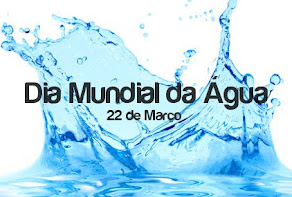We are experiencing a hard times in all areas of the planet, with
natural resources being consumed relentlessly. We are having all kind of
problems and the latest one is the population explosion, which was a topic at
Stockholm Conference in 1972, as a problem to be solved.
In 2014, the program of the United Nations Environment program (UNEP)
warned about the problem of the shortage of sand, one of the most accessible
natural resource. Insatiable demand for housing construction and public works
such as roads and highways, extracted especially in rivers, beaches, reefs and
sandy deposits, causing irreversible environmental damage to the ecosystems.
Changes of water courses; increased content of sedimented material in
suspension, promoting siltation; deforestation; distortion of the relief;
formation of the pits; silting of watercourses perennials; destruction of areas
of permanent preservation; destruction of flora and fauna; Changing the
atmospheric, are just some of the environmental damage caused by mineral exploitation.
With this alert, several studies have begun looking for alternative
solutions to the sand as one of concrete aggregates, construction foundation of
its works.
In addition of being a major problem, another question has been
following this issue, which is the illegal extraction of sand by common
criminals, organized crime, mafia, militias, guerrillas, public officials and
businessmen of the sector worldwide.
They have seen in this natural resource, a form of easy enrichment with
less risk and costs that other global crimes, such as drug trafficking, human
trafficking, organs trafficking and also wild animals trafficking.
Illegal sand extraction is becoming one of the most profitable crimes
and more harmful to the environment. It has been committed daily in Brazil and
in the world, and the annual turnover is very high, being estimated at Brazil,
by this study, between US $ 2,344,029,665 and US $ 2,470,463,204.
In the world it has been estimated between US $ 181.96 billion and
US $ 215.14 billion, being the third largest in Billings in the ranking of
major global crime, behind only product piracy and counterfeiting, which
has a turnover US $ 923 billion and US $ 1.130 billion and drug trafficking,
with sales between US $ 426.0 billion to US $ 652.0 billion.
There are very significant values that cannot be disregarded and must be
faced with the serious and relevant concerns by those who have the
responsibility to fight it. Adding the scarcity factor, we have a really
worrying situation for developing nations, which needs infrastructure works and
they are the biggest consumers of natural resources.
China, India, Brazil, the Asian countries and the African continent are
in the top of a list of biggest consumers of illegal sand, where suddenly the
fight happens, despite authorities not investing resources to minimize the
crimes in the sand mines and not to disclose the environmental impact.
Besides, this study also comes to the mineral sector in Brazil, which
the environmental crimes committed in this area, the legal exploration schemes,
the Modus Operandi of the criminals and some examples of countries where the
illegal extraction of sand happens.
Updated ranking of Major Global Crime - GFI/LFR
TRANSNATIONAL CRIME
|
US$ billions
|
|
1
|
Counterfeiting
|
923,0 - 1.130,0
|
2
|
Drug Trafficking
|
426,0 - 652,0
|
3
|
ILLEGAL SAND
EXTRACTION
|
181,96 - 215,14
|
4
|
Human Trafficking
|
150,2
|
5
|
Illegal Logging
|
52,0 - 157,0
|
6
|
Illegal Mining
|
12,0 - 48,0
|
7
|
IUU Fishing
|
15,5 - 36,4
|
8
|
Illegal Wildlife
Trade
|
5,0 - 23,0
|
9
|
Crude Oil Theft
|
5,2 - 11,9
|
10
|
Trafficking in
Cultural Property
|
1,2 - 1,7
|
11
|
Small Arms & Light Weapons Trafficking
|
1,7 - 3,5
|
12
|
Organ Trafficking
|
0,84 - 1,7
|
Source: Global
Financial Integrity – GFI/Ramadon, Luis Fernando - ACCAMTAS
THE AUTHOR
Luis Fernando
Ramadon is Special Federal police agent, having joined on Federal Police in
2003. Worked in Foz do Iguacu, Parana and in Uruguaiana, Rio Grande do
Sul. He was a Coordinator of the Core Operations of the
Station to Combat Environmental Crimes and Historic Heritage (DELEMAPH), in Rio
de Janeiro.
He Is a Professor at the National Police Academy
(NPA/PF), mining Crimes classes. Graduated in law, Brazilian School of legal
sciences (FBCJ) and in economics, Universidade do Estado do Rio de Janeiro (UERJ).
He specializes in environmental law, with a postgraduate degree from
Universidade Estácio de Sá, with several courses in the area of mining, Mineral
and mining law Legislation, in addition to Crimes Investigation courses of
mining and Environmental Crimes, promoted by the National Academy of Police.
He is the author of the books and studies "the ENVIRONMENTAL
HISTORY of MARICÁ", 1996; "ENVIRONMENTAL CRIMES in the AREA of
MINING: the modus operandi to forms of investigation and prevention".
2015; "ACCOUNTS OF THE ILLEGAL EXTRACTION OF SAND IN RIO DE JANEIRO".
2015; "THE ILLEGAL SAND EXTRACTION IN BRAZIL". 2016; and
"mining: impacts and ENVIRONMENTAL CRIMES", In: Constitution, Water,
energy and mining Crisis in Latin America. 2016.
Prior to joining the Federal Police he was Superintendent of the State
Secretary of environment and sustainable development (SEMADS/RJ) and
coordinator of Agenda 21 of the State and the municipality of Rio de Janeiro;
Environmental consultant program to clean up Guanabara Bay (PDBG); Consultant
for the United Nations Development Programme – UNDP; and a member of the
Council of Environment of the State and the municipality of Rio de Janeiro.



